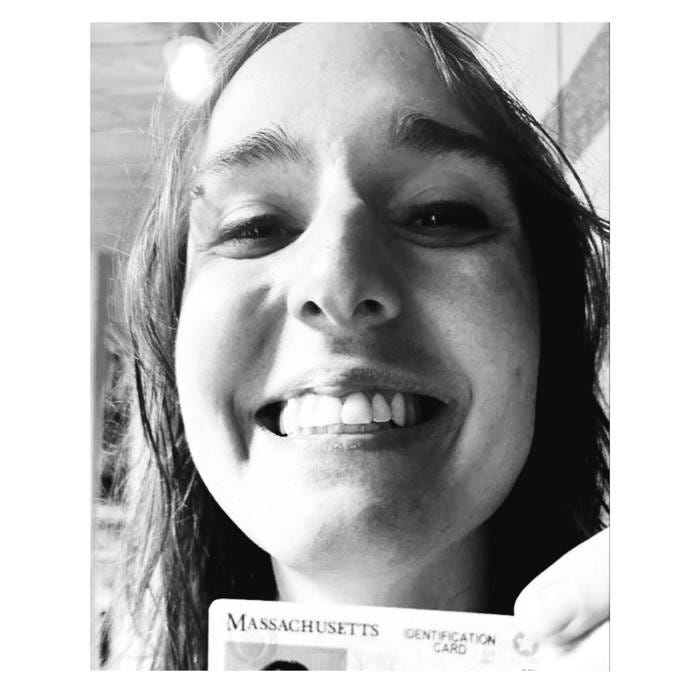Jackie Simons reflects on her self-titled debut
And song "Jersey City" on previous album
By D. Menzies
Nearly two years ago, Jackie Simons released her self-titled album. The Jersey City resident’s eight-track album of alternative music in an acoustic vein hums with simplicity, in addition to a layered approach that often makes for something almost choral. It’s a big contrast from Simons’ previous album, “dillydally,” which “is definitely like the most multilayered and polished thing that I’d ever done,” Simons told Chilltown Blues. While “dillydally” is notable for many things — including that production, being Simons’ 11th album and the song “Jersey City,” which we’ll return to later — Simons’ self-titled album marked another benchmark for her.
“The self-titled album is my first album I wrote and released since coming out as a trans woman,” Simons said. “So it was kind of very personal, and it made sense to – all the songs are written on acoustic – keep the recording very spare and minimalist … (which) felt appropriate for the songs and for what was going on in my life. It’s definitely the most stripped down and minimalist of anything I released.
“It’s also the first album that … there tends to be like a lot of humor in my music and a tendency to do left-field sort of things,” Simons added. “And for this album, the way that it came out, it’s kind of void of humor. It’s the only album that I’ve ever done that doesn’t have any humor on it.”



